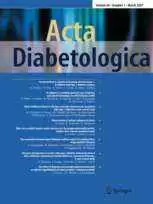Celiac.com 09/25/2009 - Scientists at the Ottawa Hospital Research Institute and the University of Ottawa have uncovered what looks to be an important clue regarding the causes of type 1 diabetes.
A research team led by Dr. Fraser Scott recently screened 42 patients with type 1 diabetes and found that nearly half showed an abnormal immune response to wheat proteins.
Celiac.com Sponsor (A12):
Dr. Scott is a Senior Scientist at the Ottawa Hospital Research Institute and Professor of Medicine at the University of Ottawa. The research team includes Dr. Majid Mojibian, Dr. Habiba Chakir, Dr. David E. Lefebvre, Jennifer A. Crookshank, Brigitte Sonier and Dr. Erin Keely.
In most people, the immune system functions normally, identifying and attacking dangerous foreign visitors, like viruses and bacteria, without harming healthy body tissue or other benign molecules, including food molecules in the digestive tract.
The breakdown of this process contributes to the development of various autoimmune diseases and allergies. In the case of Type 1 diabetes, the immune system wrongly targets the cells of the pancreas, the organ responsible for regulation of blood sugar.
Globally, diabetes afflicts nearly 250 million people. Type 1 diabetes, the most severe form of the disease, makes up about 10 percent, or about 25 million, of that worldwide total. There is currently no cure for Type 1 diabetes, and sufferers require daily insulin injections can help control blood sugar levels.
Dr. Scott’s results offer the first suggestions that T cells in the immune systems of type 1 diabetics are also more likely to have adverse immune reactions to wheat. His results also suggest that such over-reaction is tied to genes associated with type 1 diabetes.
According to Dr. Scott, the research suggests that "people with certain genes may be more likely to develop an over-reaction to wheat and possibly other foods in the gut and this may tip the balance with the immune system and make the body more likely to develop other immune problems, such as type 1 diabetes.”
Dr. Scott adds that the immune system has to find "the perfect balance to defend the bodyagainst foreign invaders without hurting itself or over-reacting to theenvironment and this can be particularly challenging in the gut, wherethere is an abundance of food and bacteria.”
In side comments that accompany the paper, diabetes expert Dr. Mikael Knip of Finland suggest that the team's results "add to the accumulating concept that the gut is an active player in the diabetes disease process.”
Earlier animal models studies by Dr. Scott have shown that a wheat-free diet can reduce the risk of developing diabetes, but he notes that more research is needed to confirm the association and to assess possible effects of diet changes in humans.
More research is also needed to examine possible connections to celiac disease, an autoimmune disease associated with adverse immune reactions to wheat proteins that has significant associations with diabetes.
This research project was funded by the Juvenile Diabetes Research Foundation and the Canadian Institutes of Health Research.
Source:
Open Original Shared Link







Recommended Comments
There are no comments to display.